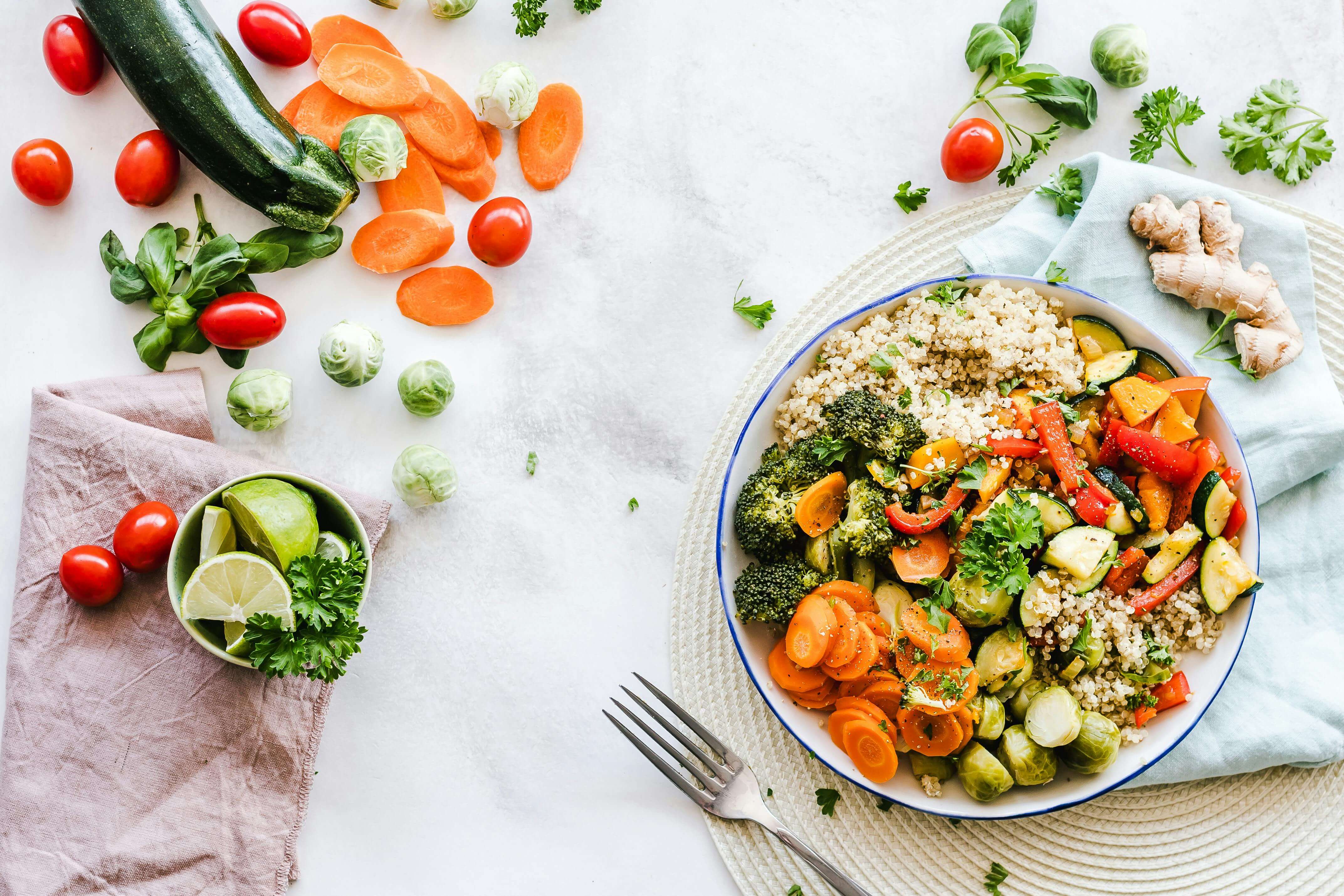
A Guide To A Balanced Diet: Let's Weight It Up.
In a world inundated with fad diets and conflicting nutritional advice, the concept of a balanced diet emerges as a beacon of clarity amidst the chaos. But what exactly is a balanced diet, and why does it hold such paramount importance in our lives? Let's delve into the fundamentals of this crucial aspect of nutrition.
What is a Balanced Diet?
At its core, a balanced diet is a dietary regimen that provides the body with all the essential nutrients it requires to function optimally. It is a harmonious blend of various food groups in appropriate proportions, catering to the individual's nutritional needs based on factors like age, gender, activity level, and overall health status.
Why is a Balanced Diet Important?
The significance of a balanced diet cannot be overstated. Here are some compelling reasons why it's crucial:
Nutrient Adequacy: A balanced diet ensures that your body receives an adequate supply of essential nutrients, including carbohydrates, proteins, fats, vitamins, and minerals, necessary for sustaining life and promoting overall well-being.
Disease Prevention: Consuming a diverse array of nutrient-rich foods helps lower the risk of chronic diseases such as heart disease, diabetes, obesity, and certain cancers.
Optimal Growth and Development: For children and adolescents, a balanced diet is pivotal for proper growth, development, and cognitive function.
Weight Management: By maintaining a balanced diet, you can achieve and sustain a healthy body weight, reducing the likelihood of obesity and its associated health complications.
Energy and Vitality: Providing your body with the right mix of nutrients ensures sustained energy levels, enhancing productivity and vitality throughout the day.
What Does a Balanced Diet Consist of?
A balanced diet comprises a variety of foods from different food groups, including:
Fruits and Vegetables: Rich sources of vitamins, minerals, antioxidants, and fiber crucial for overall health and disease prevention.
Whole Grains: Complex carbohydrates found in whole grains like oats, brown rice, quinoa, and whole wheat provide sustained energy and essential nutrients.
Protein Sources: Lean meats, poultry, fish, eggs, legumes, nuts, and seeds are excellent sources of protein necessary for muscle repair, growth, and immune function.
Dairy or Alternatives: Dairy products like milk, yogurt, and cheese offer calcium, protein, and other essential nutrients. Non-dairy alternatives such as fortified plant-based milks are suitable options for those with lactose intolerance or following a vegan lifestyle.
Healthy Fats: Incorporating sources of healthy fats such as avocados, nuts, seeds, and olive oil helps support brain health, hormone production, and absorption of fat-soluble vitamins.
How to Plan a Balanced Diet
Crafting a balanced diet requires mindful planning and attention to nutritional needs. Here's how you can do it effectively:
Assess Your Nutritional Needs: Consider factors like age, gender, activity level, and any specific dietary requirements or restrictions.
Diversify Your Plate: Aim for variety by including foods from all food groups in your meals. Emphasize colorful fruits and vegetables, whole grains, lean proteins, and healthy fats.
Portion Control: Be mindful of portion sizes to avoid overeating and maintain a healthy weight.
Read Food Labels: Familiarize yourself with food labels to make informed choices about the nutritional content of packaged foods.
Stay Hydrated: Water is essential for various bodily functions, so ensure adequate hydration throughout the day.
How to Maintain a Balanced Diet
Maintaining a balanced diet is not just about what you eat but also about adopting sustainable lifestyle habits:
Meal Planning: At Wholistically Healthy, you have the freedom to select from an extensive array of carbohydrates, proteins, and vegetables. This ensures that you can discover nutritious meal options that not only delight your palate but also offer the convenience of choosing meals from well-organized food categories. A well-rounded diet necessitates a diverse range of foods, which is why our weekly menu undergoes regular changes to provide ample variety. Additionally, we offer a selection of snacks for those occasions when you crave a little extra something.
Practice Moderation: Enjoy all foods in moderation, including treats and indulgences, while prioritizing nutrient-dense options most of the time.
Mindful Eating: Pay attention to hunger and fullness cues, savoring each bite and eating slowly to prevent overeating.
Regular Physical Activity: Combine a balanced diet with regular exercise to maximize health benefits and support overall well-being.
In essence, a balanced diet is not a restrictive regimen but rather a flexible and sustainable approach to nourishing your body for optimal health and vitality. By embracing the principles of balance, variety, and moderation, you can embark on a journey towards a healthier, happier you.
